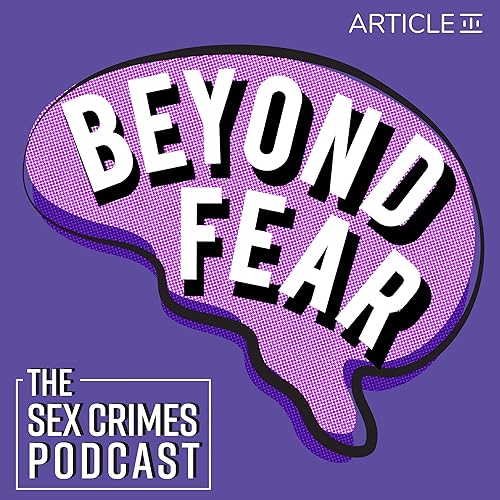In our last episode, Who is the Ideal Victim? we spoke with Dr. Danielle Slakoff about media depictions of survivors of interpersonal and sexual harm. Specifically, we unpacked the way that race influences media narratives about who qualifies as a “real victim” worthy of help and sympathy. Black and Latina victims are frequently portrayed as somehow to blame for their victimization. The sexual harm experienced by Black women and girls is often undisclosed, unaddressed, and unseen. In this episode, Dr. Carolyn M. West and Dr. LaDonna Long share their work that exposes the ways in which Black women and girls are treated not only by the media but also by the criminal legal system and its actors. Much of our conversation centers on the need to understand and acknowledge our country’s racist past in order to make sense of the way that Black women and girls are treated by the criminal legal system. For most of this country's history the rape of Black women and girls was not illegal because they were considered property and were not seen as human beings. This permeated our legal system, and the consequences are still felt today. Ultimately, it will take all of us to make the changes necessary to reverse these injustices and we hope that our conversation will take us one step closer to understanding the way forward. Additional readings and resources: Love with Accountability: Digging up the Roots of Child Sexual Abuse – edited by Aishah Shahidah Simmons Pornography Consumers of Color and Problematic Pornography Use: Clinical Implications (2022) – Carolyn M. West, PhD Mammy, Sapphire, and Jezebel: Historical Images of Black Women and their Implications for Psychotherapy (1995) – Carolyn M. West, PhD Let me Tell Y’all bout Black Chicks: Images of Black Women in Pornography by Carolyn M. West, PhD Sara Bartman – Black Past Girlhood Interrupted: The Erasure of Black Girls’ Childhood by Rebecca Epstein, Jamilia J. Blake, and Thalia Gonzalez Race and Prostitution in the United States by Donna M. Hughes New Docuseries ‘Hunt for the Chicago Strangler’ focuses on Murders of Dozens of Black Women over 20 Years – Fox 32 Chicago Surviving the Silence: Black Women’s Stories of Rape by Charlotte Pierce-Baker Arrested Justice: Black Women, Violence, and America’s Prison Nation by Beth E. Richie Black and Missing Foundation Black Women’s Blueprint We as Ourselves Guest Bios: Carolyn M. West, PhD is Professor of Clinical Psychology and Associate Dean of Special Initiatives at the University of Washington. She is an award-winning author, internationally recognized speaker, documentary filmmaker, and expert witness. For more than three decades, she has been investigating gender-based violence, with a special focus on domestic violence and sexual assault in the lives of African American women. Her mission is to deliver keynote addresses, conduct workshops, and customize innovative training material to educate and equip professionals with the skills to provide culturally responsive services. Her vision is to educate, empower, and inspire a multicultural alliance of survivors and professionals to prevent all forms of violence. LaDonna Long, PhD is an Associate Professor of Criminal Justice at Roosevelt University. Her research focuses on women’s experiences with victimization, particularly how race, class, and gender influences post-assault coping mechanisms. Her prior work focused on age and educational differences in African American women who have experienced sexual victimization as well as factors that predict disclosure of sexual victimization to health professionals. She has also published work on medical advocates’ experiences in the emergency room with survivors and law enforcement as well as vicarious trauma. Learn more about your ad choices. Visit megaphone.fm/adchoices
続きを読む
一部表示
 2022/09/211 分
2022/09/211 分 2022/09/071 時間 45 分
2022/09/071 時間 45 分 2022/08/241 時間 7 分
2022/08/241 時間 7 分 58 分
58 分 1 時間 10 分
1 時間 10 分 2022/06/2957 分
2022/06/2957 分 1 時間 8 分
1 時間 8 分 2022/06/011 時間 21 分
2022/06/011 時間 21 分
